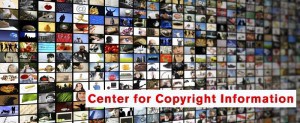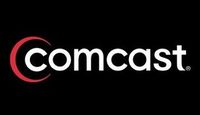 Craig Moffett, a Wall Street analyst working for Sanford Bernstein, just loves Verizon Wireless’ new calling plans, which he believes will help Verizon grow profits when most Americans already have a cell phone.
Craig Moffett, a Wall Street analyst working for Sanford Bernstein, just loves Verizon Wireless’ new calling plans, which he believes will help Verizon grow profits when most Americans already have a cell phone.
Verizon’s move “is the most profound change to pricing the telecom industry has seen in twenty years,” Moffett told the Associated Press.
Bernstein believes that cell phone companies can keep boosting the all-important “average revenue per user,” or ARPU, by shifting price hikes for services consumers are now using the most. That means wireless data which Bernstein sees as a growth industry. In contrast, customers are using their phones less than ever for making phone calls and sending text messages.
Verizon Wireless CEO Lowell McAdam agrees, telling an investor conference customers will end up paying more money to Verizon than ever before.
“Is it going to cost them more money? Yeah, but it will probably shift their wallet spend from things they do individually into a bucket of gigabytes,” McAdam said. “The relationship will change. This will be something much more ingrained in their life as opposed to something that’s attached to their hip.”
Verizon’s “Share Everything” may become ingrained in customers’ wallets when it launches June 28, eliminating voice minute and text message allowances but increasing pricing for data. The cheapest smartphone plan will now run $90 a month. For customers who already pay for unlimited voice minutes and texting and avoid using too much wireless data, the new price will be lower than current Verizon plans. But for those who traditionally choose a calling minutes allowance and send a limited number of text messages, prices under the new plan will be going up by $10-20 a month.
Verizon also hopes to capture an increasing share of wireless data for portable devices. Consumers have typically avoided 3G/4G-capable add-ons for devices in favor of Wi-Fi-only, to avoid the separate data plans that are usually required. Verizon hopes customers will consider spending more on wireless network-capable tablets and laptops that can be added to their existing Verizon accounts. Adding a tablet will cost an extra $10 a month, $20 for a portable 3G/4G wireless modem for a laptop. Data usage will be shared from their existing data plan.
Moffett expects the new plan from Verizon, and a forthcoming one expected from AT&T, to solidify both companies’ dominance in the wireless market.
“In a household with two or three AT&T or Verizon devices — say, a smartphone and a tablet or two, and one device from T-Mobile or Sprint. Sprint doesn’t stand a chance,” Moffett said.
[flv]http://www.phillipdampier.com/video/CNBC Verizon Wireless Plans 6-12-12.flv[/flv]
CNBC talks with Public Knowledge’s Michael Weinberg about the “consumer benefits” of Verizon’s new wireless plans, which Weinberg suggests are few and fleeting. (3 minutes)
[flv]http://www.phillipdampier.com/video/CNBC Is Wi-Fi Dead 6-12-12.flv[/flv]
CNBC wonders if Wi-Fi is dead as Verizon and AT&T encourage customers to use 3G/4G wireless data instead of more local Wi-Fi networks. (3 minutes)


 Subscribe
Subscribe









